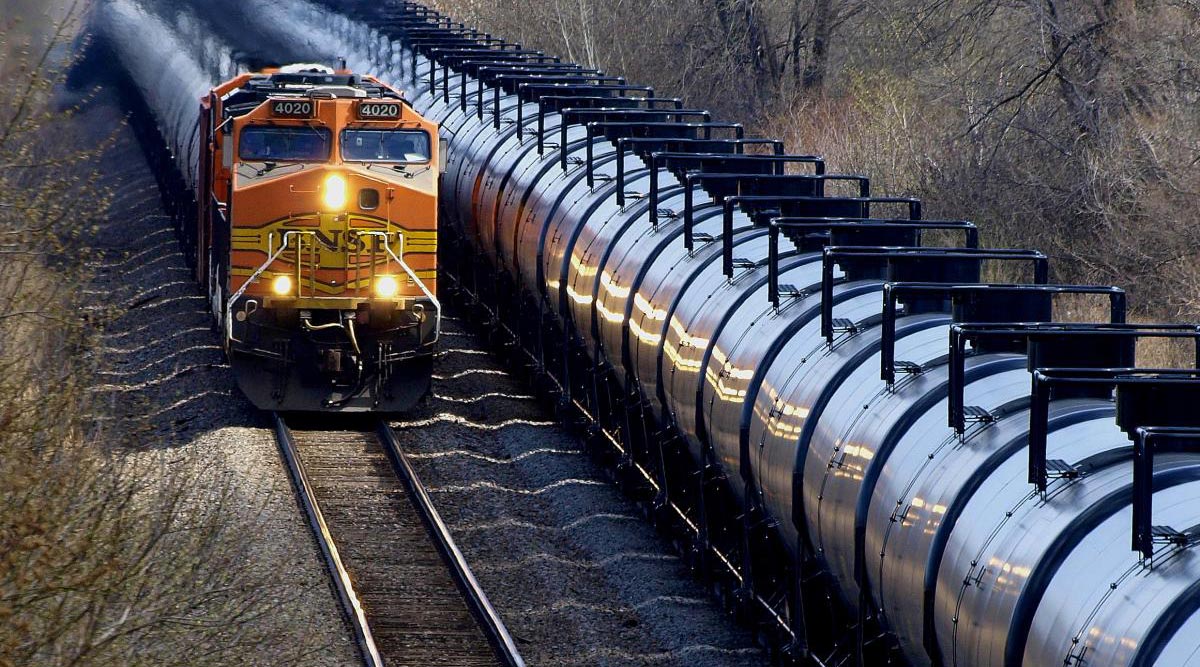Oregon Calls for Indefinite Moratorium on Oil Trains Through the State

Oregon has asked the Federal Railroad Administration to place an open-ended moratorium on oil trains traveling through the state, because preliminary findings of an investigation into the June 3 derailment in Mosier suggest inspectors might not be able to detect the problem that likely caused the crash.
Investigators identified a problem with the screws that fasten the rails to the railroad ties as the cause of the derailment. But in a June 8 letter to the Federal Railroad Administration, an Oregon Department of Transportation administrator said recent inspections failed to catch a number of broken screws along the track in Mosier. Hal Gard, the state's rail and public transit administrator, discussed the letter at a meeting of the Oregon Transportation Commission in Hood River on June 16.
"Until the underlying cause of the bolt failures is understood and a means of detecting this defect is developed, we request a moratorium on running unit trains over sections of track that contain track fasteners of this material in the state of Oregon," Gard wrote.
It was unclear how much of Oregon's rail system uses these types of fasteners.
RELATED: Despite Fears, Number of Oil Trains Increasing at Port of Tacoma
Tom Fuller, a spokesman for the department, said Oregon has yet to receive a response from federal railroad officials. The broken screws along the track in Mosier were already rusted, suggesting they had been damaged for awhile. Fuller said Union Pacific, which voluntarily suspended oil-by-rail shipments through the gorge temporarily, claims its inspectors can identify the broken fasteners. "However, it ran over those same tracks recently and didn't detect it," Fuller said. "If they claim they can detect these bolts, why didn't they?"
Justin Jacobs, a Union Pacific spokesman, said the railroad is able to detect broken fasteners by hiring contractors to operate a device called a gauge restraint measurement system inspection vehicle. "What that does is it applies lateral pressure equivalent to a locomotive to the rail line, which is intended to find this condition of the bolts being broken," Jacobs said.
Union Pacific has committed to increase the frequency of these track inspections in the gorge, up from 18-month intervals to four times a year. Jacobs said he could not address whether the last inspection missed the rusted screws that appeared to have been broken for awhile. "I'm not our track guy, and I can't really speak to that," Jacobs said.
Gov. Kate Brown and several members of Oregon's congressional delegation had already requested a temporary halt to oil trains through the Columbia River Gorge.




